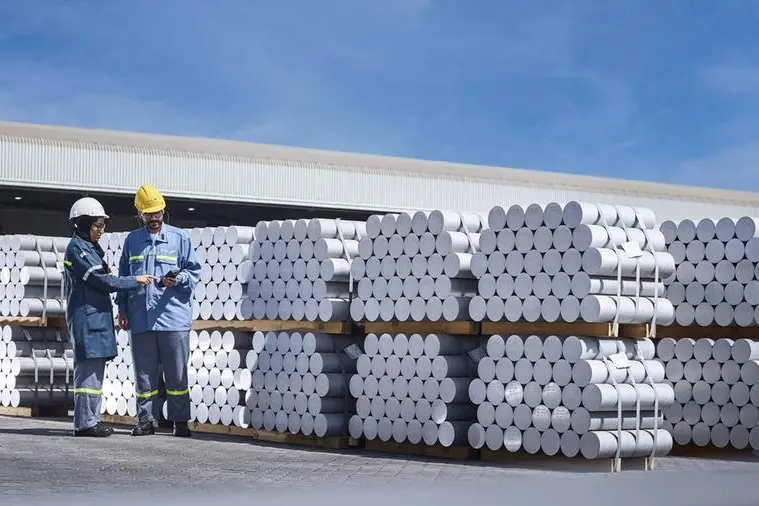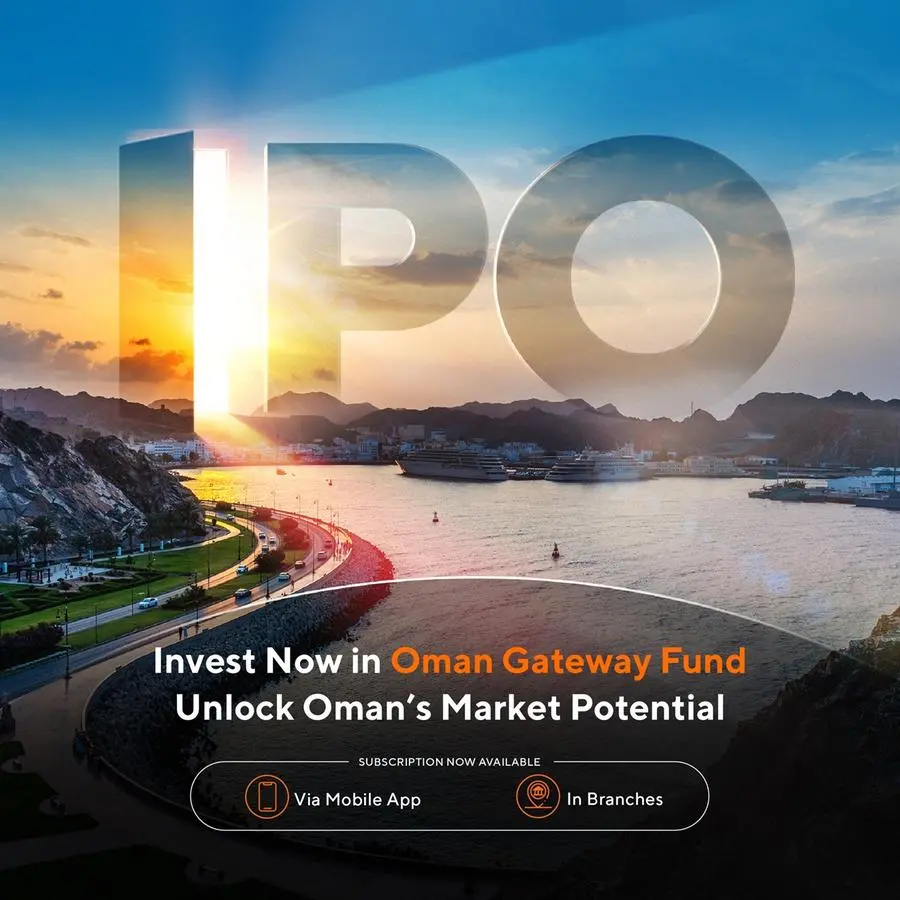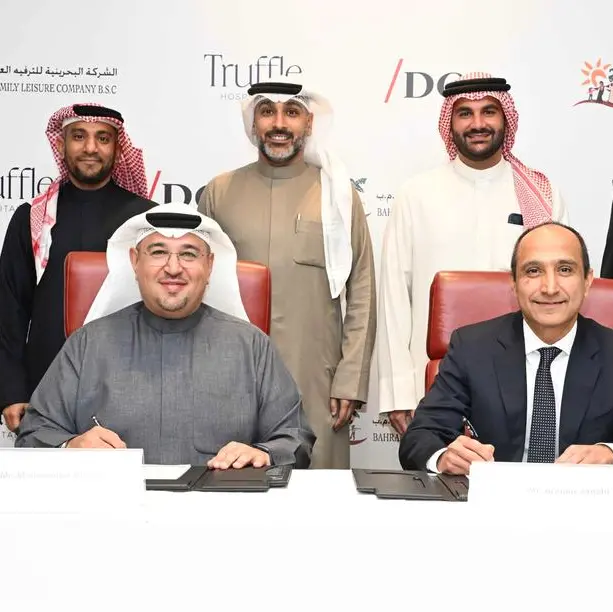PHOTO
Abdulnasser Bin Kalban, Chief Executive Officer of Emirates Global Aluminium: “EGA continues to deliver competitive financial performance throughout the economic cycle, through our focus on operational excellence, controlling our costs, and our long-term commercial relationships with our global customers.
“The first half of 2024 saw our acquisition of Leichtmetall and progress in the development of our recycling plant in the UAE, important first steps in our strategy to grow EGA to meet expanding global demand for low carbon primary and recycled aluminium over the decades ahead. I look forward to further steps before the end of the year.”
Financial highlights of H1 2024
- Adjusted EBITDA of AED 4.20 billion ($1.14 billion), compared to AED 4.15 billion ($1.13 billion) in H1 2023.
- Net profit of AED 1.84 billion ($500 million), compared to AED 1.96 billion ($533 million) in H1 2023.
- Revenue of AED 13.98 billion ($3.81 billion) compared to AED 14.79 billion ($4.03 billion) in H1 2023.
- Aluminium segment EBITDA margin of 27.5 per cent, compared to 26.9 per cent in H1 2023, leading amongst global industry peers.
- EGA’s net debt to adjusted EBITDA ratio further reduced to 1.6x, compared to 1.8x at year-end 2023. Total debt stood at AED 16.5 billion ($4.5 billion). During the period EGA made scheduled repayment of AED 102.9 million ($28 million) of GAC debt.
Operational highlights of H1 2023
- Total Recordable Injury Frequency rate of 1.11 per million hours worked. Tragically, on 17 June, a contractor lost his life in a work-related incident at EGA’s Jebel Ali site.
- Sales of cast metal of 1.30 million tonnes, compared to 1.32 million tonnes in H1 2023.
- Some 82 per cent of metal sales were value-added products or ‘premium aluminium’, compared to 77 per cent in H1 2023.
- Local UAE customers accounted for 149 thousand tonnes, or 11 per cent, of total metal sales.
- Hot metal production of 1.34 million tonnes, compared to 1.32 million tonnes in H1 2023.
- Al Taweelah alumina refinery delivered 1.22 million tonnes of alumina to EGA’s smelters, compared to 1.15 million tonnes in H1 2023.
- Bauxite exports from Guinea increased by five per cent to 7.19 million tonnes, compared to 6.87 million tonnes in H1 2023.
- During the first half, EGA completed the acquisition of Leichtmetall, a European specialty foundry. This was the first strategic acquisition since the formation of EGA through the merger of Dubai Aluminium and Emirates Aluminium in 2014.
Abu Dhabi, United Arab Emirates: Emirates Global Aluminium, the world’s largest ‘premium aluminium’ producer and the biggest industrial company in the United Arab Emirates outside oil and gas, today reported solid financial performance for the first half of 2024 amid sustained global demand for ‘premium aluminium’.
EGA’s adjusted Earnings Before Interest, Tax, Depreciation and Amortisation (adjusted EBITDA) was AED 4.20 billion ($1.14 billion), compared to AED 4.15 billion ($1.13 billion) in the first half of 2023.
Net profit was AED 1.84 billion ($500 million), compared to AED 1.96 billion ($533 million) in the equivalent period of 2023. The UAE introduced a corporate tax at nine per cent of profit from 1 January 2024.
EGA’s aluminium segment adjusted EBITDA margin was 27.5 per cent, compared to 26.9 per cent in the first half of 2023, leading amongst global industry peers.
EGA’s average realised London Metal Exchange aluminium price was $2,303 per tonne, compared to $2,359 per tonne in the first half of 2023. The benchmark London Metal Exchange aluminium price rose in the second quarter including on further restrictions on international trade in Russian metal, and geopolitical tensions. Alumina prices increased towards the end of May, mainly driven by supply disruptions in Australia and India.
In May, EGA completed the acquisition of Leichtmetall, a European specialty foundry. This was EGA’s first strategic acquisition since the formation of the company through the merger of Dubai Aluminium and Emirates Aluminium in 2014.
Abdulnasser Bin Kalban, Chief Executive Officer of Emirates Global Aluminium, said: “EGA continues to deliver competitive financial performance throughout the economic cycle, through our focus on operational excellence, controlling our costs, and our long-term commercial relationships with our global customers.
“The first half of 2024 saw our acquisition of Leichtmetall and progress in the development of our recycling plant in the UAE, important first steps in our strategy to grow EGA to meet expanding global demand for low carbon primary and recycled aluminium over the decades ahead. I look forward to further steps before the end of the year.
“However, safety is our first priority at EGA, and our achievements mean little in the context of a colleague losing his life on our Jebel Ali site. We have investigated this incident thoroughly with an independent third-party expert and shared the findings with our industry. On behalf of everyone at EGA, I again express my deep condolences to our colleague’s family.”
Mohamed Almarzooqi, Acting Chief Financial Officer of Emirates Global Aluminium, said: “Our competitive operational and financial performance has enabled us to further improve our leverage position while delivering great returns for our shareholders. This means we are in a strong position to capitalise on the opportunities from the long-term growth of demand for low carbon primary and secondary aluminium.”
EGA sold 1.30 million tonnes of cast metal in the first half of 2024 to 411 customers in 57 countries, compared to 1.32 million tonnes in the first half of 2023.
Some 82 per cent of metal sales were value-added products or ‘premium aluminium’ compared to 77 per cent in the first half of 2023. EGA focuses on maintaining or growing relative market share in ‘premium aluminium’ in key markets and segments, while also optimising the EBITDA contribution of VAP sales. During the period, demand for billets was up 18 per cent year-on-year.
EGA sold 149 thousand tonnes of metal to local customers in the UAE, compared to 148 thousand tonnes in the first half of 2023. EGA’s metal supply supports the development of downstream industries in the UAE, further enhancing EGA’s contribution to the achievement of the UAE’s Operation 300bn industrial growth strategy.
During the first half, EGA produced 1.34 million tonnes of hot metal at its smelters in Al Taweelah and Jebel Ali, compared to 1.32 million tonnes in the first half of 2023. Heavy rains in April led to production opportunity losses of less than five thousand tonnes. In April, the H-class gas turbine at Jebel Ali entered a forced shutdown, which was resolved in July. The unavailability of this turbine reduced production in the first half by three thousand tonnes of hot metal.
Al Taweelah alumina refinery produced 1.22 million tonnes of alumina during the first half of 2024, compared to 1.15 million tonnes in the equivalent period last year.
EGA’s bauxite mining subsidiary Guinea Alumina Corporation exported 7.19 million tonnes of bauxite, the ore from which aluminium is derived, compared to 6.87 million tonnes in the first half of 2023.
During the first half of 2023, EGA made progress on the development of the UAE’s largest aluminium recycling plant, in Al Taweelah. The project is progressing ahead of plan with first hot metal expected in 2026. On completion, the recycling plant will have a capacity of 170 thousand tonnes of secondary billets per year.
In June, EGA published a Green Finance Framework to support decarbonisation projects and initiatives that contribute to the transition to a low-carbon economy. The acquisition of Leichtmetall earlier in the period was fully funded with EGA’s first green loan facility.
On 17 June, a contractor tragically lost his life in an incident with a moving vehicle at EGA’s Jebel Ali site. EGA engaged an independent third-party expert to fully investigate this incident. EGA’s Total Recordable Injury Frequency Rate (a broad measure of safety which includes minor incidents) was 1.11 per million hours worked in the first half of 2024, compared to 1.55 per million hours worked in the equivalent period in 2023.




















